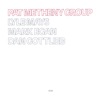By Dylan Reddick
Change has always been a concept of varying distinction when it comes to music. Be it a change in form, aesthetic or composition such adjustments are often met with bi-polar reactions both critically and sales-wise. Opeth is a band quite familiar with the concept of change. After a career of albums infusing death metal with progressive rock they took a radical new direction with their 2011 album, Heritage. The death metal element of their music was subtracted entirely in favor of warmer guitar tones, crooning vocals and focusing on the progressive rock aspect of their music. The new direction was met with a divided reaction, some enjoying it as a new, fresher musical direction and others finding it to be a dull tribute to the progressive rock bands of the seventies.
Their new album, Pale Communion, makes no attempt to return to the band’s old death metal formula, opting instead to advance upon the sound established on Heritage. The album begins with a bombastic introduction as “Eternal Rains Will Come” sets the stage with dramatic organ riffs and jazzy drums. The song finds its groove with chorus-like vocals and smooth bass rumbling in the background. The next track, “Cusp Of Eternity”, kicks the album into gear as Opeth turns the distortion up for the song’s crunchy, dramatic main riff. Lead vocalist and guitarist, Mikael Akerfeldt, trades solos with lead guitarist, Fredrik Akesson, over the song’s haunting riffs in spectacular fashion. The album’s next two tracks “Moon Above, Sun Below” and “Elysian Woes” both feature large amounts of acoustic sections, the first using them to cut between various segments of the song and the latter being comprised nearly entirely of acoustic guitar and vocals. However, unfortunately, “Elysian Fields” ends up dragging on a bit, and ends up feeling rather bland. However the album finds its stride again on the next track “Goblin”, a track hinted at by Akerfeldt as having been a tribute to the Italian progressive rock band of the same name. It’s a fitting tribute, bearing many similarities to Goblin’s own music and providing an entertaining and sinister bridge to the album’s second half.
I mistook the next track, “River”, as an Emerson, Lake, and Palmer song at first. It sounds strikingly similar for the first three minutes, beginning with arpeggiated chords upon a twelve-string guitar, lackadaisical guitar solos and soft vocals. Following the three minute mark the song begins to spiral out into a crazed exchange of guitar solos, haunting repeated vocals forming a crazed jam, a crescendo of sorts. It sets the stage fittingly for “Voice of Treason”, a dramatic track featuring a bold main riff comprised of a section of symphonic strings. The strings were a fabulous choice as they add an element of suspense and almost cinematic drama to the song that distorted guitars could not have pulled off. The song continues guided by a jazzy drum presence provided by Martin Axenrot that grows into a short clamor before fading out into the album’s final track, “Faith in Others”. This song moves slowly and deliberately, one pace at a time, mimicking a funeral dirge in its gait and mood. Akerfeldt sings along to a slow, trudging riff in the middle and delivers the best vocal line of the album in glorious fashion, grabbing the listener one last time.
“The blood of departure in our tracks
Drifting from our empty left home
Your hand reached out to hold mine
But you’re grasping the thin ice”
It’s a haunting ending to the album before it slowly fades out once again with the strings. In the end, Pale Communion is a great effort on Opeth’s part, triumphing where Heritage failed. There’s a renewed energy and purpose to the music that solidifies Opeth’s ability to make quality music, death metal or not. Will all of their fans enjoy it? Probably not, but they’d be missing out, as this is a lovely album regardless. It shines on its ability to create tension and a sinister atmosphere while still providing a sense of delicacy with the softer sections. Listening to it would be preferable, as many of the songs float into each other to create a sort of narrative to the music. It’s probably the most accessible of their albums yet as well, with no death growls whatsoever, but contains some of their most dramatic and memorable moments since 2005’s Ghost Reveries. There are a few missteps, a few moments of the songs felt as if they dragged on and some of the vocals don’t sound as strong as others but overall it’s a fantastic release. Pale Communion may not be a return to Opeth’s trademark sound but it’s quite enjoyable nonetheless, providing listeners with a new side of the band instead of taking the easy route. Often bands change to accrue popularity that otherwise would have been unattainable with their old sound but Pale Communion seems to be more of a labor of love on Opeth’s part, paying tribute to the progressive rock that inspired them while expanding upon the style in new ways.
8/10


















